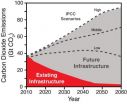Lack of trust in hospitals a major deterrent for blood donation among African-Americans
2010-09-10
(Press-News.org) Disparities in healthcare between races exist in the United States. A new study published in the journal Transfusion explores why African Americans donate blood at lower rates than whites. The findings reveal that there is a significant distrust in the healthcare system among the African American community, and African Americans who distrust hospitals are less likely to donate.
Led by Beth H. Shaz, MD, Chief Medical Officer of the New York Blood Center in New York, New York, researchers created a survey to explore reasons for low likelihood of blood donation in African Americans. Fifteen African American churches in metropolitan Atlanta participated in an 81-item self-administered survey, with 930 people responding to the survey.
The study's results demonstrate that about 1 in 5 African American individuals (17 percent) do not trust hospitals. This lack of trust was positively correlated with not donating blood even compared against other risk factors. Lack of trust in hospitals was also associated with not wanting to participate in research and less knowledge about the blood supply.
Respondents who did trust hospitals had more knowledge of the blood supply, less fear of donation, and were more likely to respond to blood needs of the community.
"Blood centers and hospitals need to build trust with the African American community," Shaz notes. "Increased trust will result in increased blood donor rates, increased participation in research, and increased medical knowledge."
INFORMATION:
END
ELSE PRESS RELEASES FROM THIS DATE:
2010-09-10
BEKTV utilizing industry leading service assurance tool to gain viewership insight
Fiber to the Home (FTTH) Conference, Las Vegas, NV, September 9th, 2010: BEK Communications, the innovative telecommunications company serving south-central North Dakota, announced today their use of xVu as a means of gaining improved insight of their local programming. A key element of BEK's strategy as a multi-faceted telecom company is their exclusive hometown programming. Through BEKTV, BEK Communications broadcasts such specialized local features as BEK Sports, BEK Life and BEK Local ...
2010-09-09
Bowerbird males are well known for making elaborate constructions, lavished with decorative objects, to impress and attract their mates. Now, researchers reporting online on September 9 in Current Biology, a Cell Press journal, have identified a completely new dimension to these showy structures in great bowerbirds. The birds create a staged scene, only visible from the point of view of their female audience, by placing pebbles, bones, and shells around their courts in a very special way that can make objects (or a bowerbird male) appear larger or smaller than they really ...
2010-09-09
Five minutes in a scanner can reveal how far a child's brain has come along the path from childhood to maturity and potentially shed light on a range of psychological and developmental disorders, scientists at Washington University School of Medicine in St. Louis have shown.
Researchers assert this week in Science that their study proves brain imaging data can offer more extensive help in tracking aberrant brain development.
"Pediatricians regularly plot where their patients are in terms of height, weight and other measures, and then match these up to standardized curves ...
2010-09-09
Stanford, CA— Scientists have warned that avoiding dangerous climate change this century will require steep cuts in carbon dioxide emissions. New energy-efficient or carbon-free technologies can help, but what about the power plants, cars, trucks, and other fossil-fuel-burning devices already in operation? Unless forced into early retirement, they will emit carbon dioxide into the atmosphere for decades to come. Will their emissions push carbon dioxide levels beyond prescribed limits, regardless of what we build next? Is there already too much inertia in the system to curb ...
2010-09-09
Laxenburg, Austria – 9th September 2010. Due to increasing life-spans and improved health many populations are 'aging' more slowly than conventional measures indicate.
In a new study, to be published in Science, (10 September) scientists from the International Institute for Applied Systems Analysis (IIASA) in Austria, Stony Brook University, US, (SBU), and the Vienna Institute of Demography (VID) have developed new measures of aging that take changes in disability status and longevity into account.
The results give policymakers faced with growing numbers of elderly ...
2010-09-09
Current energy technologies are not enough to reduce carbon emissions to a level needed to lower the risks associated with climate change, New York University physicist Martin Hoffert concludes in an essay in the latest issue of the journal Science.
Many scientists have determined that in order to avoid the risks brought about by climate change, steps must be taken to prevent the mean global temperature from rising by more than 2°C above pre-industrial levels. Current climate models indicate that achieving this goal will require limiting atmospheric carbon dioxide (CO2) ...
2010-09-09
An innovative grouping of conservation scientists and practitioners have come together to advocate a fundamental shift in the way we view biodiversity. In their paper, which was published today in the journal Science, they argue that unless people recognise the link between their consumption choices and biodiversity loss, the diversity of life on Earth will continue to decline.
Dr Mike Rands, Director of the Cambridge Conservation Initiative and lead author of the paper, said: "Despite increasing worldwide conservation efforts, biodiversity continues to decline. If ...
2010-09-09
The lure of greater profits elsewhere in the world may divert bio-pharmaceutical firms in developing countries from the creation and distribution of affordable drugs, vaccines and diagnostics for illnesses of local concern, undermining the health prospects of millions of poor people, experts warn.
And they call for a series of measures to bolster international support for continuing the success of firms finding homegrown solutions to immediate health concerns in developing countries.
In a commentary published by the journal Nature Biotechnology, researchers Rahim Rezaie ...
2010-09-09
University of California, Berkeley, researchers have taken genes from grass-eating fungi and stuffed them into yeast, creating strains that produce alcohol from tough plant material – cellulose – that normal yeast can't digest.
The feat could be a boon for the biofuels industry, which is struggling to make cellulosic ethanol – ethanol from plant fiber, not just cornstarch or sugar – economically feasible.
"By adding these genes to yeast, we have created strains that grow better on plant material than does wild yeast, which eats only glucose or sucrose," said Jamie Cate, ...
2010-09-09
NAIROBI (9 September 2010)—Greenhouse gas emissions caused by livestock operations in tropical countries—a major contributor to climate change—could be cut significantly by changing diets and breeds and improving degraded lands, according to a new study published this week in the U.S. Proceedings of the National Academy of Sciences. And as an added bonus, scientists found the small changes in production practices could provide a big payoff by providing poor farmers with up to US$1.3 billion annually in payments for carbon offsets.
"These technologically straightforward ...
LAST 30 PRESS RELEASES:
[Press-News.org] Lack of trust in hospitals a major deterrent for blood donation among African-Americans


